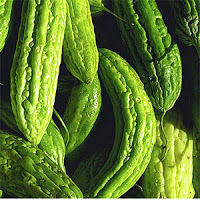
More evidence that low-calorie sweeteners are bad for your health
Studies show that artificial sweeteners can raise the risk of hypertension, metabolic syndrome, type 2 diabetes and heart disease, including stroke.

Natural Health News — Traditional medicine is practised in many rural areas in the developing world.
The World Health Organization estimates that about 80% of Africans rely on traditional medicine, a great proportion of which is herbal, to meet their health needs and this could increase because of the rising acceptability of natural therapies.
Now, an interesting study carried out by the World Agroforestry Centre (ICRAF) in Kenya has shown how an understanding and recognition of that market could not only mean better health, but a better life for the farmers that produce the raw materials of herbal formulas.
The study published in the scientific journal, Forests Trees and Livelihoods, says that in Kenya, the majority of traditional medicines are sold as wild plant parts. But in urban areas, demand for traditional medicines is rising and this is leading to increased formalisation of the market, with traditional medicines now incorporated in powders, liquids and creams.
Jonathan Muriuki, lead author of the study and research scientist at ICRAF, believes that as lifestyles improve, consumers demand better quality. “This opens up greater opportunities for trade in medicinal tree products among actors in the value chain, such as collectors, producers, healers, processors, manufacturers and even exporters.”
Better income for small farmers
Muriuki and co-authors set out to learn where medicinal plant traders in Kenya sourced their raw materials and to determine if formalisation of the market could provide more opportunities for cultivation.
“Cultivation would not only provide a sustainable supply of medicinal products but also increase the incomes of poor smallholder farmers while addressing current problems of over-harvesting and resource degradation which have reduced the abundance of wild materials.”
Their research revealed that 49% cent of traders in herbal medicine sourced materials from farms and the demand was rising. However, 69% of traders expressed a preference for materials sourced from the wild mainly because they perceived these plants would have higher potency than farm-grown material.
This perception is based on the expectation that wild plants will have grown to full maturity and in rich soils with less interference from human activities such as chemical application.
Those who preferred farm-sourced material said this was because of expected higher quality from good crop husbandry, increasing scarcity in the wild, and for some, a deliberate choice to conserve wild resources.
“While these types of formal enterprise are fairly recent in Kenya, we found that they are all experiencing annual growth and demanding more uniform raw materials which cultivation can provide,” says Muriuki.
Opening up the market
The study reveals that most farmers sell timber and fruits from their trees but are not selling medicinal tree products because they do not have access to markets “Farmers stated they would sell medicinal products if they had access to market opportunities,” says Muriuki.
“Access to markets for other tree products has led to increased cultivation of tree species providing these, so it would be fair to assume the same could be applied for medicinal trees”.
Herbal medicine has long been popular amongst the tribal people’s of Kenya. Now its popularity is spreading to a wealthier middle class. Kenya. Regulation can bring its own problems, as we have seen in the developed world. These include an irrational tendency to restrict the marketplace or turn over the production of herbal medicines to large corporations.
To improve the market in traditional medicines, the study recommends linking traders to farmers in the form of grower groups, especially women, which could initially focus on the most traded species as alternative crops are recommended.
Many natural herbals come from developing countries. Perhaps rather than restricting the marketplace, as is currently the plan here in the EU and elsewhere, we should be recognising its potential and opening it up further so that everyone benefits.

Please subscribe me to your newsletter mailing list. I have read the
privacy statement